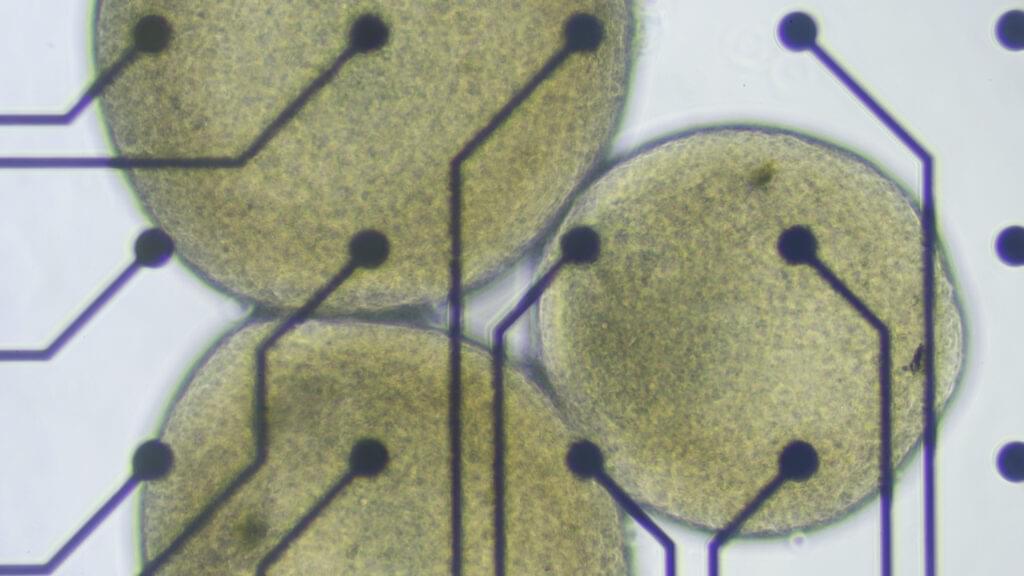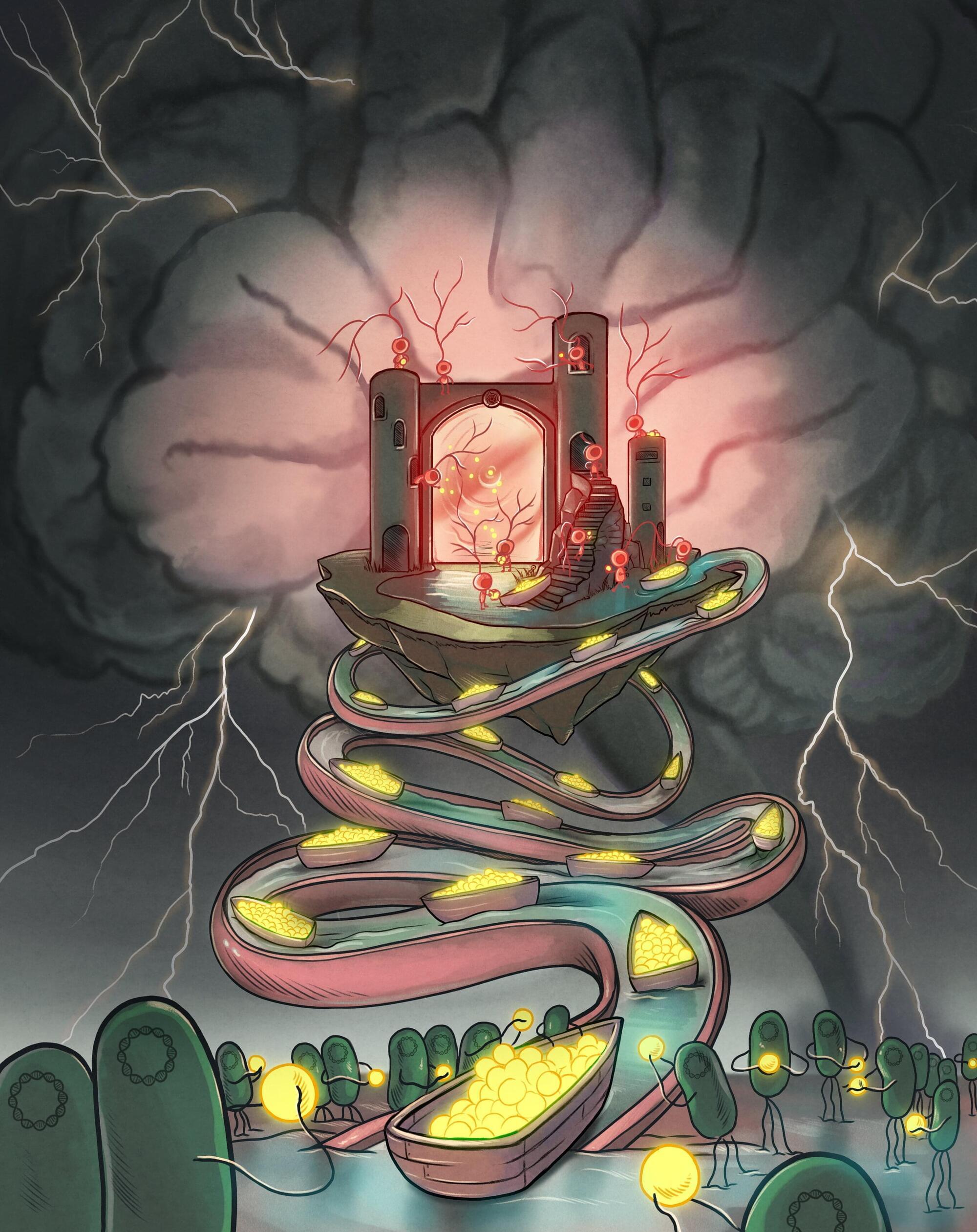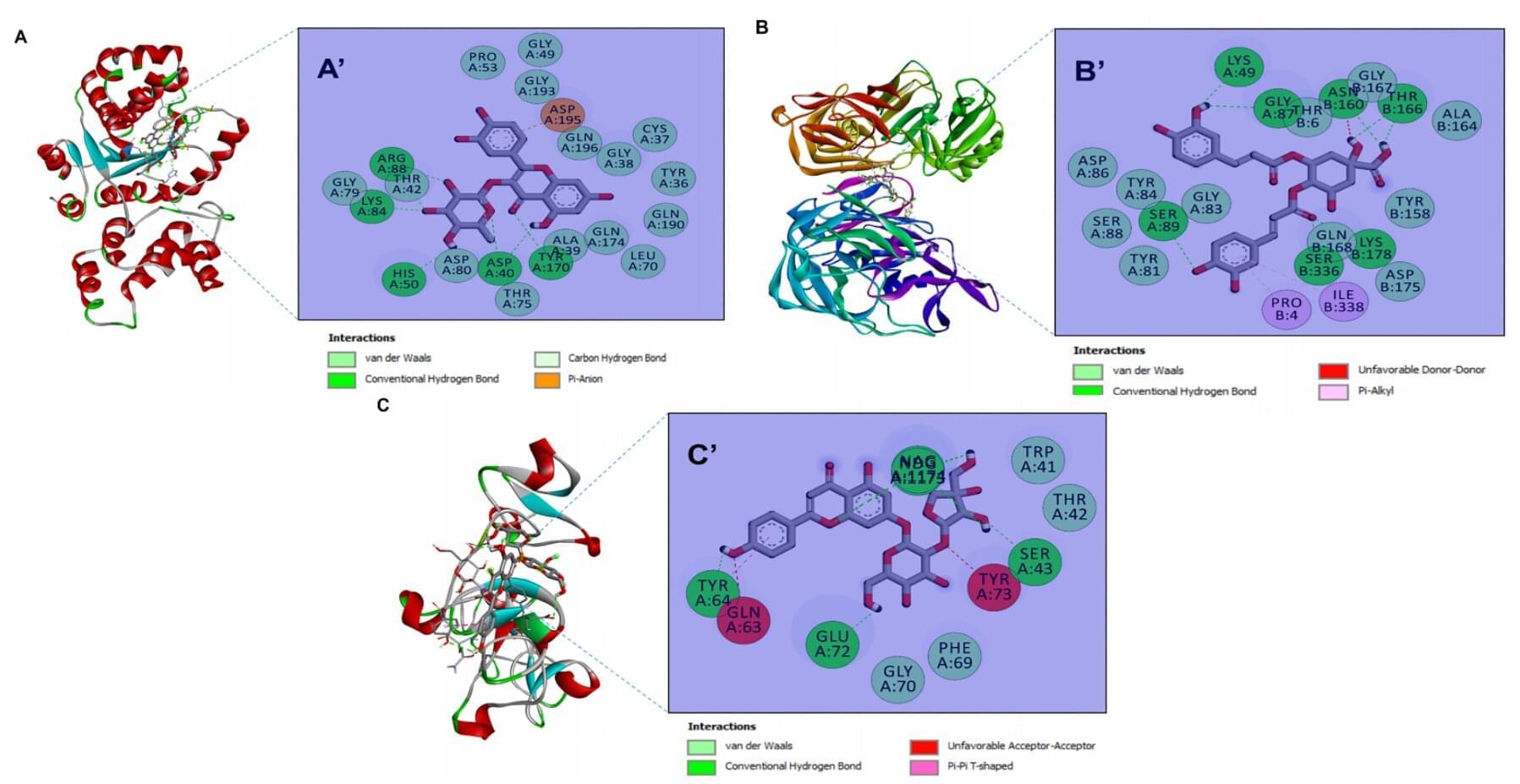What can coronal mass ejections (CMEs) on other stars teach astronomers about stellar formation and evolution? This is what a recent study published in Nat | Space



For the brain organoids in Lena Smirnova’s lab at Johns Hopkins University, there comes a time in their short lives when they must graduate from the cozy bath of the bioreactor, leave the warm, salty broth behind, and be plopped onto a silicon chip laced with microelectrodes. From there, these tiny white spheres of human tissue can simultaneously send and receive electrical signals that, once decoded by a computer, will show how the cells inside them are communicating with each other as they respond to their new environments.
More and more, it looks like these miniature lab-grown brain models are able to do things that resemble the biological building blocks of learning and memory. That’s what Smirnova and her colleagues reported earlier this year. It was a step toward establishing something she and her husband and collaborator, Thomas Hartung, are calling “organoid intelligence.”
Tead More
Another would be to leverage those functions to build biocomputers — organoid-machine hybrids that do the work of the systems powering today’s AI boom, but without all the environmental carnage. The idea is to harness some fraction of the human brain’s stunning information-processing superefficiencies in place of building more water-sucking, electricity-hogging, supercomputing data centers.
Despite widespread skepticism, it’s an idea that’s started to gain some traction. Both the National Science Foundation and DARPA have invested millions of dollars in organoid-based biocomputing in recent years. And there are a handful of companies claiming to have built cell-based systems already capable of some form of intelligence. But to the scientists who first forged the field of brain organoids to study psychiatric and neurodevelopmental disorders and find new ways to treat them, this has all come as a rather unwelcome development.
At a meeting last week at the Asilomar conference center in California, researchers, ethicists, and legal experts gathered to discuss the ethical and social issues surrounding human neural organoids, which fall outside of existing regulatory structures for research on humans or animals. Much of the conversation circled around how and where the field might set limits for itself, which often came back to the question of how to tell when lab-cultured cellular constructs have started to develop sentience, consciousness, or other higher-order properties widely regarded as carrying moral weight.

“It’s not a Jedi mind trick,” he writes in a statement. “This is what communication is. It is what humans do best, and it’s unique and amazing.”
Hasson argues that his research shows communication is really “a single act performed by two brains.” He believes that all brains naturally couple with the outside world, reacting to whatever stimuli we’re bombarded with. What makes humans different is our ability to couple without stimuli, according to Hasson. For example, if you show two monkeys a banana, their brains would likely react the same way, and the same goes for humans. However, if someone says the word banana to you, both you and the speaker would understand that you’re referring to the oblong, yellow fruit despite it not being physically present. This is something not all animals can achieve, which is why it’s so exciting for researchers like Hasson.
Studies show that brain synchronization happens in many settings. For instance, researchers found neural coupling can occur during chess matches or collaborative music-making sessions—two activities that require focus and creativity. On the other hand, a 2014 study published in PLUS One found that synchronization can occur during a much more physical activity: kissing. The experiment found heightened inter-brain connection when heterosexual couples were kissing each other’s lips rather than the backs of their hands.

The age-old advice to “trust your gut” could soon take on new meaning for people diagnosed with Parkinson’s disease, thanks to a creative feat of bioengineering by researchers in the University of Georgia’s College of Veterinary Medicine.
Anumantha Kanthasamy, professor and director of the Isakson Center for Neurological Disease Research (ICNDR) leads a multidisciplinary research team including Gregory Phillips, Piyush Padhi, and other scientists that has engineered a groundbreaking living medicine, a beneficial probiotic designed to deliver levodopa steadily from the gut to the brain of Parkinson’s patients.
In a paper published in the journal Cell Host & Microbe, Kanthasamy’s team details how they engineered and tested the probiotic bacterium Escherichia coli Nissle 1917 as a drug-delivery system that continuously produces and delivers the gold-standard Parkinson’s drug, which is converted to dopamine in the brain. The E. coli Nissle strain was chosen for its century-long record of safely treating gastrointestinal disorders in humans.

A research team led by Prof. Zou Xudong from the Aerospace Information Research Institute of the Chinese Academy of Sciences (AIRCAS) has proposed a new solution to address two longstanding challenges in Micro-Electro-Mechanical Systems (MEMS) resonant accelerometers: temperature drift and measurement dead zones.
By implementing a dual-mode operating scheme that effectively decouples the operating frequencies of the device’s differential beams, the team has achieved improvements in the sensor’s accuracy and performance. Their findings were recently published in Microsystems & Nanoengineering.
The study revealed that driving one beam in its first resonant mode while operating the other in its second resonant mode can enhance temperature compensation and mitigate the modal localization effect that typically causes measurement dead zones. The dual-mode design also preserves the geometrical symmetry of the beams, which is critical for minimizing temperature-induced errors and maintaining stable sensor performance.

An international team of astronomers have employed the Spektr-RG spacecraft and various ground-based telescopes to investigate a distant quasar known as ID830. Results of the new observations, published November 7 on the pre-print server arXiv, indicate that ID830 is the most X-ray luminous radio-loud quasar known to date.
Quasars, or quasi-stellar objects (QSOs), are active galactic nuclei (AGN) in the centers of active galaxies, powered by supermassive black holes (SMBHs). They showcase very high bolometric luminosities (over one quattuordecillion erg/s), emitting electromagnetic radiation observable in radio, infrared, visible, ultraviolet and X-ray wavelengths.

As drug-resistant infections continue to rise, researchers are looking for new antimicrobial strategies that are both effective and sustainable. One emerging approach combines nanotechnology with “green” chemistry, using plant extracts instead of harsh chemicals to produce metal oxide nanoparticles.
A new study published in Biomolecules and Biomedicine now reports that zinc oxide nanoparticles (ZnONPs) biosynthesized from four desert plants with medicinal properties can inhibit a wide spectrum of bacteria, yeasts and filamentous fungi in laboratory tests. The work also links the plants’ rich phytochemical profiles to nanoparticle stability and potency, and uses computer modeling to explore how key compounds might interact with microbial targets.
The study is the first to produce ZnONPs from species that thrive in harsh, arid environments and are often under-used or even considered invasive. “By turning resilient desert plants into tiny zinc oxide particles, we were able to generate materials that are both eco-friendly to produce and surprisingly active against a range of microbes,” the authors write. “These green nanoparticles could form the basis for future antimicrobial formulations, pending further safety and efficacy testing.”

A research team led by Professor Wang Qining from the School of Advanced Manufacturing and Robotics, Peking University, has developed the world’s first portable underwater exoskeleton system that assists divers’ knee movement, significantly reducing air consumption and muscle effort during dives.
The findings, published in IEEE Transactions on Robotics on October 14, 2025, open new possibilities for enhancing human performance in underwater environments.

Despite the vast diversity of human languages, specific grammatical patterns appear again and again. A new study reveals that around a third of the long-proposed “linguistic universals”—patterns thought to hold across all languages—are statistically supported when examined with state-of-the-art evolutionary methods.
An international team led by Annemarie Verkerk (Saarland University) and Russell D. Gray (Max Planck Institute for Evolutionary Anthropology) used Grambank, the world’s most comprehensive database of grammatical features, to test 191 proposed universals across more than 1,700 languages. Traditionally, linguists have attempted to circumvent the genealogical and geographic non-independence of languages by sampling widely separated languages.
However, sampling can fail to remove all dependencies, reduce statistical power and does not identify historical pathways. The Bayesian spatio-phylogenetic analyses used by the authors accounted for both the genealogical and geographic non-independence of languages—a level of statistical rigor rarely achieved in previous work.

A collaboration between SISSA’s Physics and Neuroscience groups has taken a step forward in understanding how memories are stored and retrieved in the brain. The study, recently published in Neuron, shows that distinct perceptual biases—long thought to arise from separate brain systems—can, in fact, be explained by a single, biologically grounded mechanism.
The research, led by professors Sebastian Goldt and Mathew E. Diamond, and first author Francesca Schönsberg (now a junior research chair at the École Normale Supérieure), brings together theoretical physics, computational modeling, and behavioral neuroscience to bridge decades of fragmented research on perceptual memory. Yukti Chopra and Davide Giana carried out laboratory experiments to provide the empirical data that the model was tested against.